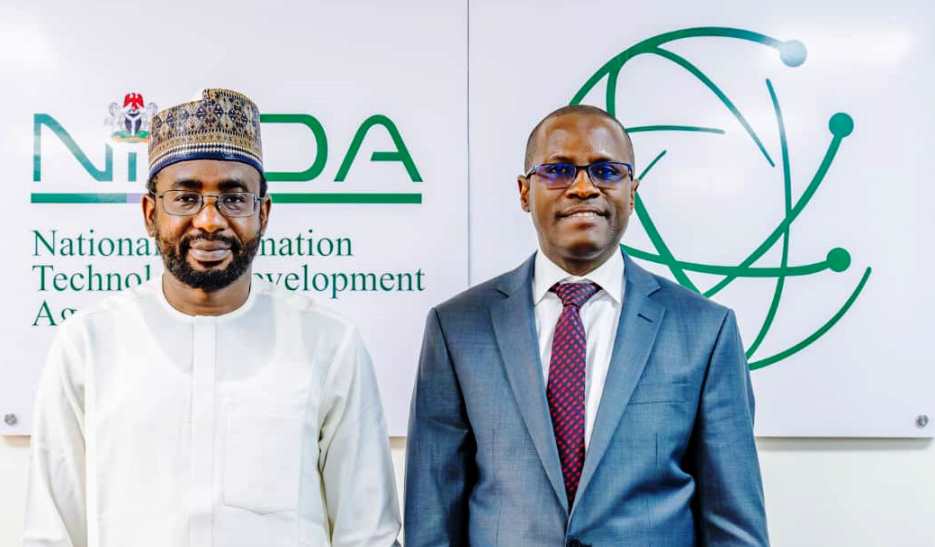In recent weeks, stories about an alleged campaign of violence targeting Christians in Nigeria have gained renewed traction, especially in Western media and political circles. This narrative received international limelight when U.S. comedian Bill Maher and CNN’s Van Jones made public allegations of “Christian genocide” in Nigeria. Adding fuel to the discussion, Senator Ted Cruz and other American lawmakers have called for legislative action to protect Nigerian Christians. The Canadian Parliament has also described Nigeria as an extremely dangerous place for Christians, stating that attacks on this group happen daily across the country.
As a practicing Christian living in Nigeria, I can confirm the tragic reality: violence affects many communities here, including Christians. However, it’s equally true that Muslims and other groups are also victims, as Nigeria is grappling with a network of terrorists, armed bandits, insurgents, and criminals who target Nigerians indiscriminately. According to local security experts and humanitarian agencies, thousands have been killed or displaced, irrespective of their religious affiliations. Yet, some evangelical organizations abroad have zeroed in on violence against Christians, framing it as a wider conspiracy to eliminate Christianity in Nigeria. This single-lens perspective often overlooks the country’s complex realities.
A major challenge with this narrative is its persistence over decades, with little or no systematic response from the Nigerian government. My first personal encounter with this characterization of violence in Nigeria was at the U.S. Congress back in 2017. Alongside notable Nigerians like Cardinal Onaiyekan and Dr. Usman Bugaje, I attended a United States Institute for Peace conference on peacebuilding. We learned that a congressional hearing was taking place on alleged massacres of Christians in Nigeria, where an American missionary presented claims of systematic killings in Benue State, calling for sanctions on Nigeria. Unfortunately, Nigerian diplomats present did not counter these claims, reportedly dismissing such hearings as “routine.” This lack of engagement has arguably allowed one-sided views to shape foreign policy discussions about Nigeria.
Throughout my years working in civil society, I’ve met several commissioners from the United States Commission on International Religious Freedom (USCIRF). Their visits to investigate crimes against Christians in Nigeria are mostly based on numerous submitted petitions. Yet, there is a noticeable absence of counter-reports or alternative viewpoints, a vacuum that makes it easier for such narratives to dominate. I have consistently argued that extremist violence in Nigeria is rarely confined to one religion, with terrorists preying on anyone outside their group. The lack of balanced documentation and advocacy from Nigerian stakeholders has contributed to misconceptions abroad.
Some Nigerian observers find it troubling that several American politicians currently outspoken on “Christian genocide” in Nigeria are themselves engaged in controversial foreign policy debates, such as the conflict in Gaza. Analyst Bolaji Adebayo told us, “There’s a feeling that some foreign policymakers use Nigerian Christian suffering as a distraction from more contentious global issues.” It is important for Nigerians and Ghanaians to recognise how divisive narratives—whether true, exaggerated, or misunderstood—can be mobilised as tools of foreign policy or global advocacy.
In 2020, I participated in a workshop in Sussex, UK, organized by the Foreign and Commonwealth Office, examining social cohesion in Nigeria. The event built on the Bishop of Truro’s 2019 report that focused heavily on the persecution of Christians in Nigeria. The workshop’s premise linked Nigeria’s many security challenges—including jihadist violence in the Northeast, banditry in the Northwest, and ongoing farmer-herder conflicts in the Middle Belt—to religious persecution. However, local Nigerian experts such as Professor Chris Kwaja cautioned that while religion is an important lens, other factors such as land disputes, poverty, and ethnic rivalries also fuel violence. He stated, “Blaming just one religious group oversimplifies deeply rooted conflicts.”
One contentious aspect of the discussion surrounds the violence involving nomadic Fulani herdsmen and mainly Christian farming communities in the Middle Belt. While some reports conclude that Fulani attackers deliberately target Christian populations and their churches, they often overlook cases of retaliatory violence, such as the incident in Numan, Adamawa State in 2016, when ethnic Bachama residents reportedly killed about 50 Fulani pastoralists. According to security analysts and the International Crisis Group, the cyclical attacks and reprisals have complex causes—including competition over land and water, weak policing, and environmental degradation. Religion certainly exacerbates tension, but it is just one factor among many.
After days of robust debate, most workshop participants agreed that any investigation starting from the assumption of “Christian persecution” alone risks missing crucial context. The evidence submitted pointed toward a pattern of violence affecting multiple communities, with both Christians and Muslims suffering attacks. There was consensus that a balanced, comparative perspective is needed to understand—and eventually resolve—these intertwined crises. Nigeria’s rapid rise in organized criminal activity also means that communities of every background are under threat.
Discussions at the workshop featured prominent faith leaders, inter-faith advocates, academics, and human rights defenders from across Nigeria. Notably, many religious leaders expressed frustration that political actors ignite conflicts, only to later expect faith leaders to “pray peace into existence,” sidestepping meaningful policy action. Participants advocated for continuous, grassroots inter-faith dialogue and urged religious communities to challenge those within who profit from division. Yet, over the years, the Nigerian government’s limited engagement with these issues has allowed damaging foreign narratives to persist, mostly unchallenged.
At the heart of Nigeria’s security challenge is an ever-deepening sense of injustice among its people. When citizens—regardless of ethnicity or faith—feel neglected or wronged by the state, it breeds resentment and makes peacebuilding more difficult. According to Dr. Fatima Usman, a sociologist at the University of Lagos, “Sustainable peace in Nigeria will only be possible when government institutions address legitimacy, representation, and fairness.” Various community groups argue that lasting solutions require sincere conversation among government, civil society, faith-based organizations, and local communities. Without trust in state protection, some groups have reportedly armed themselves, fearing reliance on state intervention is futile. This creates a dangerous feedback loop, heightening tensions and violence.
Another contributing factor is deepening poverty. The last decade, according to the National Bureau of Statistics, has seen Nigeria’s poverty rates soar, affecting about 40% of its population. Large numbers of unemployed youths—both educated and less schooled—find themselves marginalized and hopeless, making them targets for recruitment by armed groups or criminal gangs. As Dr. Ibrahim Musa, a public affairs commentator in Abuja, put it: “Ignoring the economic roots of violence is a recipe for ongoing instability.” Addressing economic exclusion is thus inseparable from any strategy for peace and national healing.
Ultimately, much of Nigeria’s persistent insecurity can be attributed to a political class perceived by many as self-serving and indifferent to citizens’ everyday struggles. Until leaders take action to address not just the symptoms, but also the root causes of unrest—ranging from youth unemployment and land disputes to fair representation—narratives of religious or ethnic targeting will continue to flourish both locally and internationally.
So what solutions are there? Experts and activists alike urge for more effective state responses to security threats, inclusive development programs, and platforms for honest inter-faith and inter-communal dialogue. West Africans—and global observers—must recognize that addressing insecurity in Nigeria requires a holistic approach, not just focusing on headline-grabbing or externally driven narratives.
Where do you stand on this ongoing debate about violence and religious identity in Nigeria? What more can our communities do to promote understanding and lasting peace? Drop your opinion in the comments, and make sure to follow us for updates and deeper analysis.
Have a story to share or a tip to send us? We want to hear your voice—every community and every perspective matters. Get your news, analysis, or first-hand experience featured by contacting us at story@nowahalazone.com. Have strong opinions or want to sell your exclusive story? We’re open for submissions and sales—let’s get your voice heard!
For general questions or support, reach out to support@nowahalazone.com. Connect with our community on social media: Facebook, X (Twitter), and Instagram. Don’t just read—be part of the conversation! #PeaceInNigeria #YourVoiceMatters










